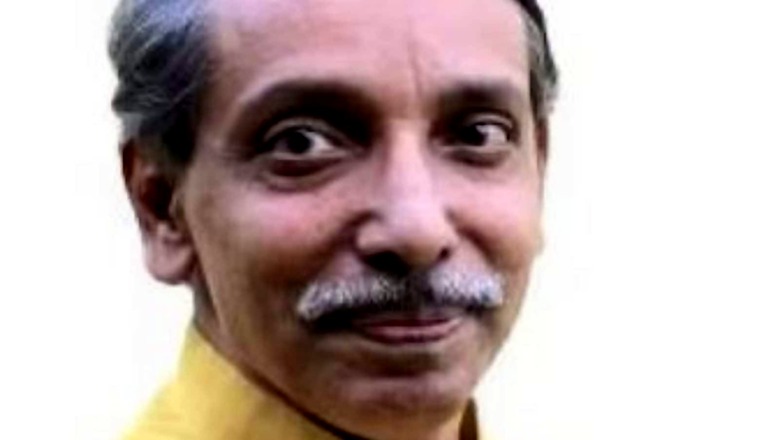
views
University Grants Commission (UGC) chairman Prof M Jagadesh Kumar, whose tenure at the Jawaharlal Nehru University (JNU) as the former Vice-Chancellor was fraught with controversies, in a free-flowing conversation with News18 said he is an academician, and has no political affiliations. Kumar stressed that the JNU during his six year’s tenure was ranked as the best central university for five consecutive years and stood only second to the Indian Institute of Science, Bengaluru. “Protests and perturbations are part of any academic world,” he said.
Kumar also told News18 that the Higher Education Commission of India (HECI) Bill, that is likely to come up in the winter session of Parliament, will remove the ‘deemed to be’ title from universities, which has been a long-standing demand of many students.
While Kumar now teaches at IIT-Delhi, which is where he says he draws his identity from, he spoke about the importance of students being taught in their mother tongue — an important facet in the New Education Policy (NEP) 2020. At present, there are four crore students enrolled in various higher education institutions across the country.
Edited excerpts:
Q. There are a host of reforms being introduced in higher education under the NEP, all at the same time. What is the regulator working on currently and projects on the anvil?
A. There are a number of things in progress. Firstly, on the draft regulations on the ‘Institutions Deemed to be Universities’, which was put in the public domain until November 18, we have received positive feedback and we are going to announce the new set of regulations within a month or so. There are 160 such universities in the country and this bill aims to bring them at par with central universities and will see three major changes — a) it will, for the first time, transform the governance structure in these institutions and make it similar as those of central universities; b) all such universities, which are not funded by the government, have to maintain a corpus fund, which will be raised to Rs 25 crore from Rs 10 crore under the old regulations and the interest on this fund will be used for providing better facilities for students such as merit-cum-means scholarships; and c) removal of ‘de novo’ (Latin word meaning ‘from the beginning’ ) category, which is too restrictive and replacing it with ‘distinct institution’ category, which will allow new universities to be established across disciplines including music languages and sports, among others. We need good universities and this will help establish them.
Q. On what stage is the HECI Bill?
A. We are working on the HECI Bill, which is the final stages of being drafted. There has been a long-standing demand from ‘deemed to be universities’ to remove the word ‘deemed’ from their title and even for students it is a kind of inconvenience to say that they come from a ‘deemed to be’ university rather than just a university. It is actually in the UGC Act (section 3), 1956 and unless that is amended, it cannot be removed. So, the draft bill will seek removing the same amongst other amendments.
Q. In line with NEP, books for higher education including those for technical courses such as engineering are being introduced in regional/home languages such as Odia and Marathi. How important is this given that English so far has been a popular medium of instruction and can it bring about a real change in the quality of learning?
A. There is a shloka in the epic Mahabharata, which says that one-fourth of the education comes from the teacher to the student, another one-fourth from peer learning, another one-fourth from self-effort and the rest from experience. So, this means that three-fourth of education can be perceived in your own mother tongue or local language. Large cross-section of students in the country, at least 90% speak and converse in the home language and given the large numbers, it’s only a step forward that we start teaching and learning in the same language and help them. There is a false belief that if you don’t know English, then you cannot excel and creates a lack of confidence. The idea is to use English as a tool of communication, not necessarily for learning.
Q. How do you plan to streamline the admission system under CUET, which saw massive glitches and confusion among students as well as universities in the first year of its implementation?
A. CUET has made admission simple with a single score. But, I agree to the glitches that happened and based on the experience, we have formed two committees — one will look into the central infrastructure across the country to ensure we chose centres with adequate facilities, and second, which will announce the schedule for all these examinations held under the NTA much in advance so that students are ready to prepare for the same. I am hoping that one month from now, we will come out with the schedules.
Q. Your tenure at JNU as the former V-C was marked by controversies with major violence on campus, with the majority seeing you as a “BJP man”. What do you have to say about it?
A. I am an academician. I have no political affiliations. When I joined JNU, my focus was to identify its strengths and build on it. Under my tenure of six years, with collective efforts, the university was ranked as the best central university for five consecutive years and stood only second to IISc (Indian Institute of Science, Bengaluru) in terms of NIRF rankings. I introduced online mode of entrance examinations, which saw diversity of students coming in and doubled the number of centres. I request the observers to look at the university’s achievements under my leadership rather than focus on some perturbations. A few students went on strike, we allowed them to sit in Sabarmati grounds. Protests and perturbations are part of any academic world. Even in my classroom, I allow students to disagree with me, challenge me, because that’s how new ideas are generated. If you only promote conformity, then where is the new knowledge created. What we achieved was convergence of these divergent ideas. For example, establishing a school of engineering or management, which was completely alien to the JNU culture, as its mainly a social sciences based institution. So, all I did was make the university better, yes it was always good, but you can’t become complacent and fall behind.
Q. There has been criticism on the recent move of doing away with the mandatory clause for PhD students to publish their research in peer-reviewed journals anymore. What is your take on it?
A. The move is not knee-jerk, it is based on a study that we did, which showed that in universities which have this mandatory condition, 75% of students were tempted to publish in poor quality or predatory journals. Just having a PhD will not help, unless it is a good quality research. It has to be self-motivated with better mentoring from supervisors. Only those who are passionate about creating new knowledge should come for PhD. The move is to make the country’s research ecosystem healthier.
Read all the Latest Education News here















Comments
0 comment